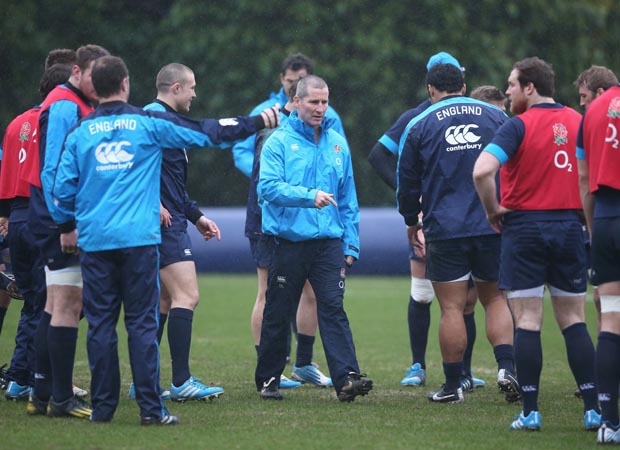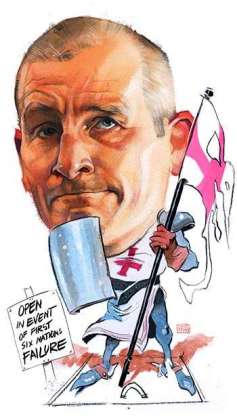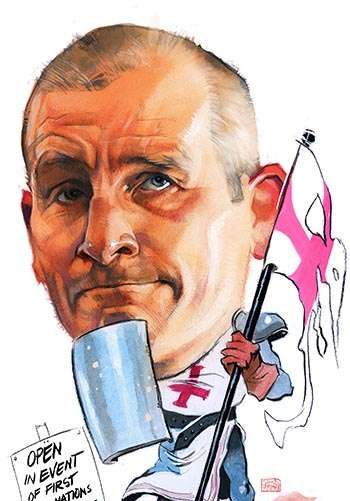 Stuart Lancaster said he would be looking for some solace this week in the Lake District. Before departing the England camp the incumbent head coach said he wasn’t intending to watch any more of the World Cup, but instead would go through the painful, hair-shirt process of going through England’s World Cup matches before reporting to the RFU‘s, as yet unspecified, review panel.
Stuart Lancaster said he would be looking for some solace this week in the Lake District. Before departing the England camp the incumbent head coach said he wasn’t intending to watch any more of the World Cup, but instead would go through the painful, hair-shirt process of going through England’s World Cup matches before reporting to the RFU‘s, as yet unspecified, review panel.
In the same boat, my instincts would be to try and sugar a bitter pill by watching some of the uplifting stuff from the quarter-finals and seeing how teams like Australia, New Zealand, South Africa, Argentina, Ireland and Wales compared to England, and what they were doing better. But each to their own.
The overall message was that, like the show, ‘the RFU review must go on’. Exactly what it will uncover, outside what we have seen with our own eyes, and learned already about the inside workings of Lancaster’s regime, is hard to imagine. It can be argued pretty cogently that rule by review, and by unaccountable RFU mandarins, has put England rugby in the unenviable place it is now.
As importantly, if any new dynamics are discovered, how much will be revealed to the English rugby public given the extreme secrecy likely to be in place after the leaks in 2011? My view is that the RFU, which is structured as a charitable trust in the interests of all its member clubs – the vast majority of which deliver the grass-roots framework on which the game in England is built – should be administered as openly as possible, rather than treated as some personal fiefdom, full of secret corridors to which only a select few of its officers have the key.
What is unacceptable given England’s pool exit is that the names of those who will sit on the review panel, and what their remit is, has yet to be revealed a fortnight after the fate of Lancaster’s side was sealed when they were demolished 33-13 by Australia.
 There is speculation that the three big figures presiding over the review process, which started last Monday, are RFU chairman Bill Beaumont, president Jason Leonard, and, wait for it … Rob Andrew.
There is speculation that the three big figures presiding over the review process, which started last Monday, are RFU chairman Bill Beaumont, president Jason Leonard, and, wait for it … Rob Andrew.
Should rumours of Andrew’s inclusion prove to be correct the RFU, and its review panel, will lose all credibility. It is inconceivable that an individual who is as implicated in the failure of the elite performance structure at not just this World Cup, but also the 2011 tournament, and arguably the 2007 tournament before that, should be allowed to adjudicate in any way on his own performance.
One of the burning issues confronting the panel is whether Lancaster will get the chance to re-apply for the job of head coach should his contract, under its current conditions, be terminated. This has happened to two New Zealand head coaches in recent memory with Wayne Smith re-applying in 2001/02, and being supplanted by John Mitchell ahead of the 2003 World Cup, and Graham Henry doing the same after the All Black exit in the 2007 quarter-finals, and being reappointed.
England have a habit of aping New Zealand’s methods, but any attempt to exonerate Lancaster and re-install him as head coach on different terms should be shelved. Henry (85.4 per cent) and Smith (70.6) had significantly better win ratios than Lancaster (62), but with the latter recording only 36 per cent against the world’s top five nations, and also on the receiving end of eight defeats at Twickenham.
If Lancaster and his coaching team are reappointed for the 2016 Six Nations he would be standing on a hair-trigger trapdoor with a long drop below. The magnitude of England’s failure as hosts of such a showcase tournament, with expectations of at least re-establishing themselves among the world’s elite rugby nations smashed, means that the reinstatement of the 2015 World Cup regime would put the entire national squad between a rock and a hard place.
If Lancaster continues, England would be compromised by a coach who no longer commands confidence, and where a single loss in the Six Nations would instantly result in a public outcry and calls for him to be sacked. This would impact severely on the rebuild required to get the Red Rose into a position where it is a credible title challenger at the 2019 World Cup.
England have to move on, and so does Lancaster. With his organisational ability and hard earned top-end experience there will almost certainly be a place for him in Premiership or Championship coaching – perhaps back in Leeds with Yorkshire Carnegie – enabling him to rebuild and, if successful, pitch again for international coaching contention.
As for the RFU, there are fears that it has created a civil service mentality in its elite playing department, in which people dig in on City-style salaries for years on end. The counterpoint to it is that the RFU elite department should be a centre of excellence in which coaches, conditioners, analysts and physios who have proved their credentials in the club game get up to a four-year period in which to make their mark at international level.
The ball is in the RFU’s hands, and this time its leading administrators cannot afford to drop it, because if they do, this World Cup could be a watershed where England are a wash-out as an international force for at least another four years.























